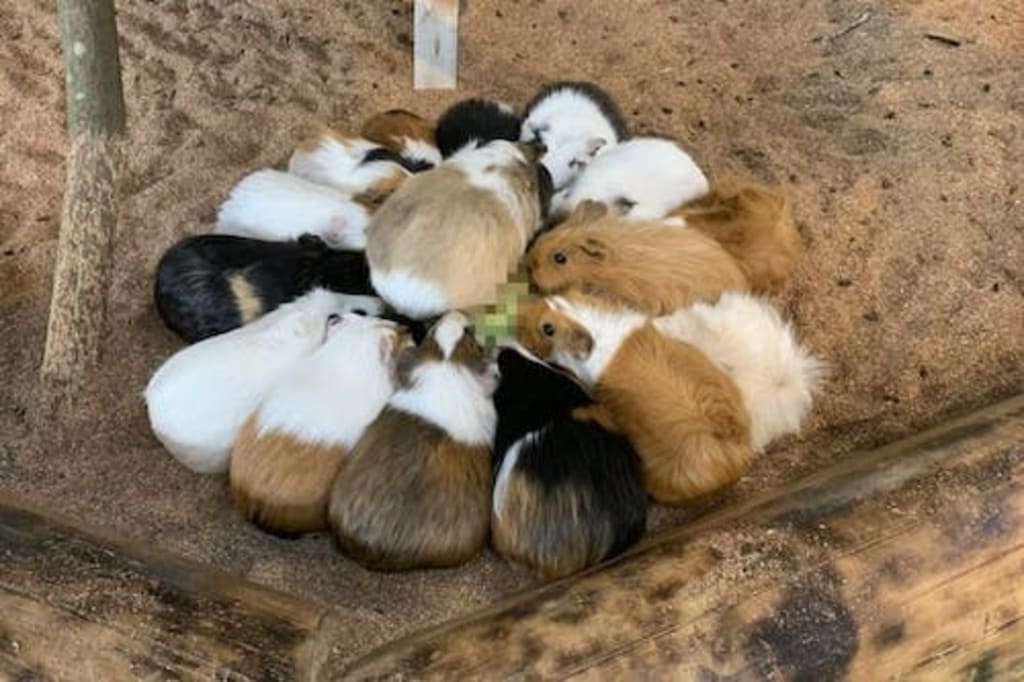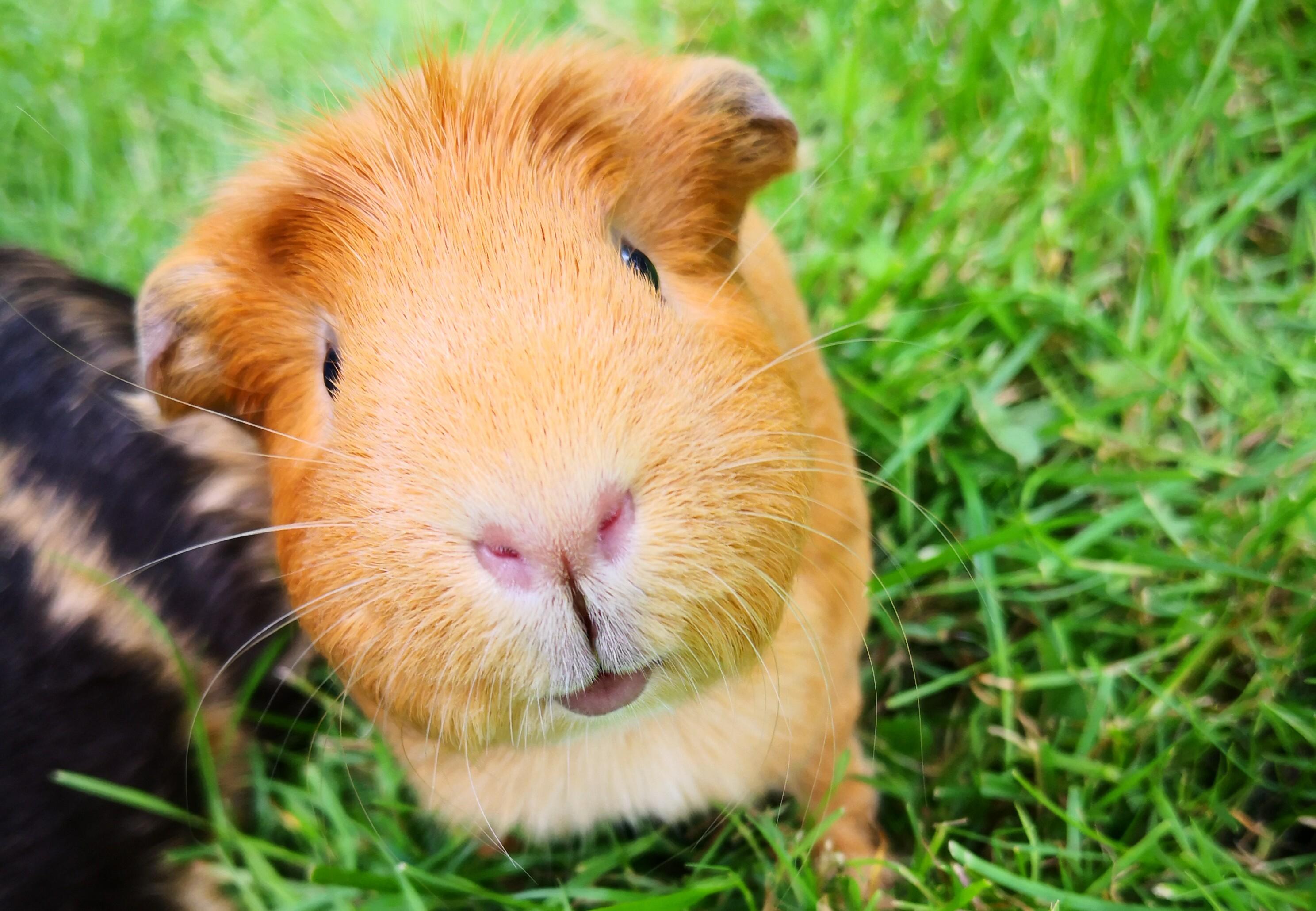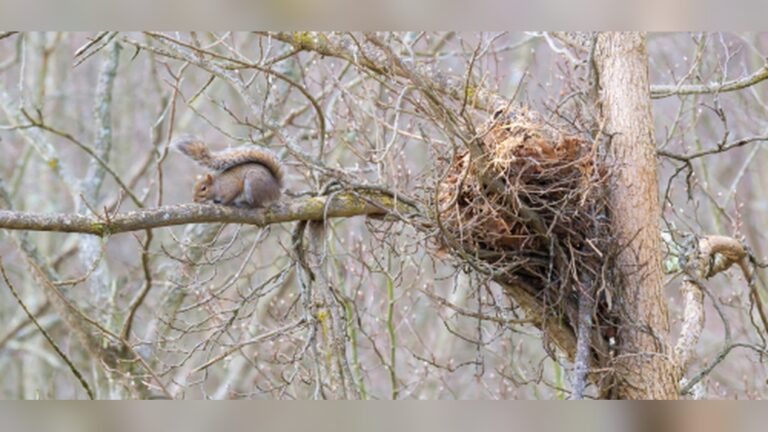Are Guinea Pigs Social: Discover Their Surprising Friendship Traits
Have you ever wondered if your guinea pig enjoys company as much as you do? Understanding whether guinea pigs are social creatures can change the way you care for them—and make their lives much happier.
If you want your furry friend to thrive, knowing how they interact with others is key. Keep reading to discover surprising facts about guinea pig social behavior and find out how you can create the perfect environment for your pet to feel loved and safe.
This knowledge could transform your bond with your little companion.

Credit: vocal.media
Social Nature Of Guinea Pigs
Guinea pigs are known for their friendly and social behavior. They enjoy company and often show signs of bonding with other guinea pigs or humans. Understanding their social nature helps owners provide better care and a happier life for these small pets.
Innate Social Instincts
Guinea pigs have strong social instincts. They live in groups to stay safe and communicate. These instincts drive them to form close bonds with others. They use sounds and body language to talk and express feelings.
Behavior In The Wild
In the wild, guinea pigs live in small groups called herds. Herds offer protection from predators. Members groom each other and share food. This social structure helps them survive and feel secure.
Impact Of Domestication
Domestication changed guinea pigs but did not remove their social needs. They still seek companionship and can get lonely alone. Pet guinea pigs do better with a friend nearby. Understanding this helps keep them happy and healthy.

Credit: www.four-paws.org
Signs Of Friendship Among Guinea Pigs
Guinea pigs are social animals that enjoy the company of others. They form bonds and show clear signs of friendship. Watching these signs helps you understand their feelings and needs better.
Friendship among guinea pigs is visible through their actions and sounds. They share moments of play, rest, and grooming. These moments strengthen their connection and create trust.
Common Social Behaviors
Guinea pigs often sit close to each other, showing comfort and trust. They play by chasing or gentle nudging. Sharing food is another sign of friendship. Friendly guinea pigs rarely fight; they prefer peaceful interactions.
Communication Through Sounds
Guinea pigs use many sounds to talk to each other. Soft squeaks mean happiness or excitement. Purring shows contentment and calmness. If one guinea pig whistles or chirps, it wants attention or signals something important.
Grooming And Physical Contact
Grooming is a strong sign of friendship. Guinea pigs clean each other’s fur to show care. They often cuddle or rest side by side. Physical contact helps them feel safe and connected.
Benefits Of Companionship
Guinea pigs are social animals that enjoy company. Having a friend helps them feel safe and happy. Companionship improves many parts of their life.
Living with another guinea pig prevents loneliness. It also makes their daily life more fun and interesting. Here are some key benefits of companionship for guinea pigs.
Emotional Well-being
Guinea pigs feel less lonely with a companion. They show signs of happiness like gentle squeaks and playful movements. Companionship helps reduce sadness and boredom. A friend provides comfort during stressful times.
Reduced Stress Levels
Stress harms guinea pigs’ health. Having a companion lowers stress by providing a sense of security. Together, they feel braver in new situations. Stress-related illnesses become less common with company.
Encouragement Of Natural Behaviors
Guinea pigs act more naturally when they live with others. They groom each other and communicate often. Play and exploration increase with a friend nearby. This keeps them active and mentally healthy.
Choosing Guinea Pig Companions
Choosing the right companions for your guinea pig is very important. Guinea pigs are social animals and enjoy the company of others. But not all guinea pigs get along easily. Careful choice helps create a happy and peaceful home for them.
Consider their personalities, age, and gender to find the best match. Introducing new guinea pigs with care makes a big difference in their relationship.
Matching Personalities
Each guinea pig has its own character. Some are shy and quiet. Others are bold and active. Pairing a calm guinea pig with a very active one may cause stress. Choose companions that have similar energy levels. They will play and rest well together. Watch their behavior during meetings to see if they get along.
Age And Gender Considerations
Age matters when pairing guinea pigs. Young guinea pigs often adapt better to new friends. Older guinea pigs might prefer calm companions. Gender also affects compatibility. Two males may fight unless neutered. Females usually live well in pairs or groups. A male and female pair can produce babies. Plan carefully to avoid unexpected litters.
Introducing New Guinea Pigs
Introducing new guinea pigs takes patience. Start by placing their cages close but separate. Let them smell and hear each other first. After a few days, allow short face-to-face meetings in a neutral space. Watch for signs of aggression like biting or chasing. If they show calm behavior, increase their time together. Always supervise their first few interactions. Gradual introduction helps build trust and friendship.
Avoiding Social Problems
Guinea pigs are social animals that enjoy company. But sometimes, they face social problems. These issues can cause stress and harm. Avoiding social problems helps keep guinea pigs happy and healthy.
Understanding their behavior and acting early can prevent fights and loneliness. Careful observation is key to spotting signs of trouble. This section explains how to avoid common social problems.
Recognizing Aggression
Aggression shows in loud squeals, biting, and chasing. Teeth chattering or raised fur also signal anger. Watch for repeated attacks or one pig hiding often. These signs mean guinea pigs feel unsafe or annoyed.
Not all fights are serious, but frequent aggression needs attention. Knowing these signs helps you act before problems worsen.
Preventing Territorial Disputes
Guinea pigs can be territorial, especially males. Each pig needs enough space and separate hiding spots. Avoid overcrowding the cage to reduce tension. Clean the cage regularly to keep it fresh and inviting.
Introduce new guinea pigs slowly and watch their reactions. Give each pig its own food bowl to prevent competition. These steps lower chances of fights over space or resources.
When To Separate Guinea Pigs
Separate guinea pigs if aggression causes injuries or stress. If one pig hides too much or stops eating, separation might help. Temporary separation can calm tensions and avoid serious harm.
Reintroduce them slowly after a break. Always watch for signs of peace or renewed aggression. Knowing when to separate protects your pets’ health and happiness.
Tips For Enhancing Guinea Pig Friendships
Building strong friendships among guinea pigs improves their happiness and health. Guinea pigs thrive in social settings. They feel safer and more relaxed with companions. Helping them form bonds takes effort and care. Here are some practical tips to boost their social life.
Creating A Comfortable Environment
Provide a spacious cage with soft bedding. Add hiding spots like tunnels or small houses. These spots help guinea pigs feel secure. Keep the area quiet and free from sudden noises. A calm space encourages friendly interactions. Make sure the temperature stays steady and pleasant.
Encouraging Group Activities
Offer playtime outside the cage together. Use safe toys that invite sharing and exploration. Let them graze on fresh grass or hay. Group activities build trust and reduce boredom. Watch closely to prevent any rough behavior. Praise calm and gentle interactions to promote peace.
Providing Shared Resources
Place food dishes and water bottles in multiple spots. This avoids competition and fights. Use large bowls to allow several guinea pigs to eat. Rotate fresh treats so all enjoy the same snacks. Clean shared items regularly to keep germs away. Sharing resources helps guinea pigs bond calmly.

Credit: www.marinij.com
How Smart Pets Lover Can Help You with Are Guinea Pigs Social
Turning Guinea Pig Social Behavior into Learning Moments
Understanding that guinea pigs are naturally social creatures opens up wonderful opportunities for practical learning. Observing the signs of friendship among guinea pigs—like gentle grooming or shared napping spots—can teach us about nonverbal communication and empathy, skills valuable both in pet care and everyday life.
When selecting companions for your furry friends, consider their personalities and compatibility, reinforcing lessons in responsibility and thoughtful decision-making. Avoiding social problems, such as territorial disputes, encourages patience and problem-solving, reminding us that relationships—whether with pets or people—require attention and care.
- Encourage interactive playtime to deepen your guinea pigs’ bond while sharpening your observation skills.
- Maintain a consistent routine to support their social well-being and build your understanding of animal behavior.
- Use trusted resources, like Smart Pets Lover, to stay informed and confident in your pet parenting journey.
For more insights or guidance, feel free to reach out—because every wag, purr, and chirp truly tells a story worth knowing.
Frequently Asked Questions
Are Guinea Pigs Naturally Social Animals?
Yes, guinea pigs are naturally social animals. They thrive in groups and enjoy interacting with other guinea pigs. Social companionship reduces their stress and promotes healthier behavior.
How Many Guinea Pigs Should I Keep Together?
It is best to keep at least two guinea pigs together. Keeping them in pairs or small groups helps meet their social needs and prevents loneliness.
Can Guinea Pigs Get Lonely Without Company?
Yes, guinea pigs can get lonely without company. Isolation may lead to stress, depression, and behavioral problems in these social creatures.
How Do Guinea Pigs Communicate With Each Other?
Guinea pigs communicate through sounds like squeaks, purrs, and whistles. They also use body language to express emotions and social bonds.
Conclusion
Guinea pigs enjoy the company of others. They feel safer and happier in groups. Single guinea pigs may get lonely or stressed. Giving them friends helps their mental health. Watch how they interact to learn their moods. Social time keeps guinea pigs active and playful.
Remember, each guinea pig has its own personality. Choose companions carefully for a peaceful home. Caring for social needs makes them thrive. Happy guinea pigs make great pets for you.







